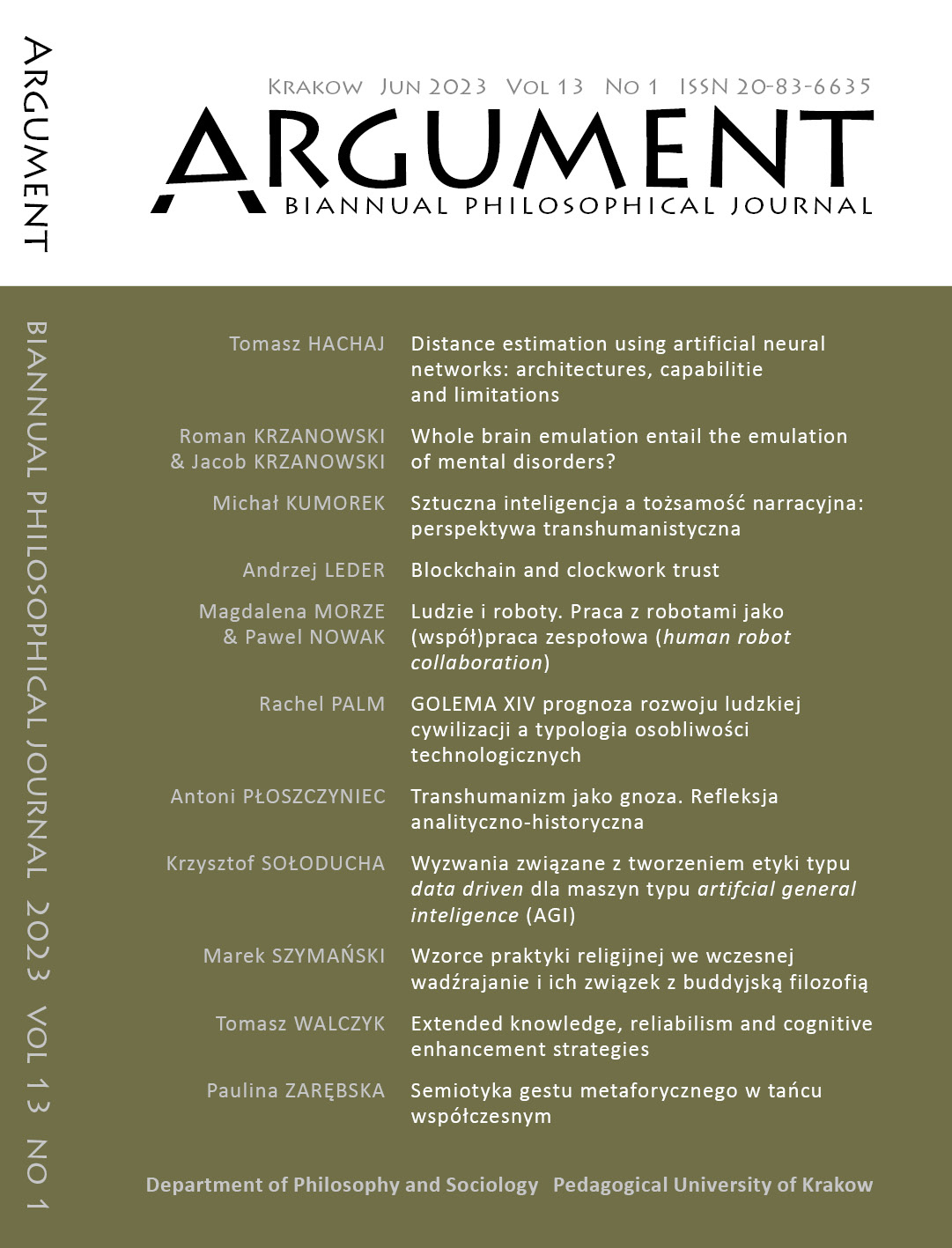Sztuczna inteligencja a tożsamość narracyjna: perspektywa transhumanistyczna
Artificial intelligence and narrative identity: a transhumanist perspective
Author(s): Michał KumorekSubject(s): Philosophy of Science, ICT Information and Communications Technologies
Published by: Wydawnictwo Uniwersytetu Komisji Edukacji Narodowej w Krakowie
Keywords: AI; cyborgization; memory; otherness; Paul Ricoeur; phenomenology; recognition; self; sub- ject; superintelligence; uncertainty;
Summary/Abstract: The main aim of the article is to show the changes in the structure of narrative identity as a result of combining the human brain with artificial intelligence (AI) under cyborgization. The hermeneutic structure of narrative identity proposed by Paul Ricoeur, considering the internal dialectics of the subject, its capacity to act and narrate itself, its relations with Others and orders of reco- gnition, will be taken as the starting point of these analyses. The effects of changing the expe- rience of unpredictability, uncertainty and memory in the lives of humans assisted by AI will be analyzed. The implications of AI assistance in the context of one’s own and other people’s cognition and actions, the I — Thou relationship, the mutuality of orders of recognition, and the abilities of subjects will be considered. An attempt will be made to answer the questions of whether. AI assistance will increase the scope of responsibility of the subject for the actions taken or rather contribute to its reduction. The danger of losing the subject’s capacity to take certain actions, such as acts of promise or forgiveness, which will be reduced to a contract in the presence of AI taking on the role of an institution, will be indicated. Finally, an attempt will be made to describe the changes in the narrative identity of a person gaining new abilities directly from AI rather than in the process of forming mutual recognitions and acquiring self- -respect and social esteem, of which the subject has been partially deprived with the possibility to perform certain activities. In this context, the perspective of the formation of a Husserlian, self-transparent Self, deprived of the otherness that exposes it to criticism as a result of the connection of the human brain with AI, will be outlined.
Journal: ARGUMENT: Biannual Philosophical Journal
- Issue Year: XIII/2023
- Issue No: 1
- Page Range: 59-74
- Page Count: 16
- Language: Polish

